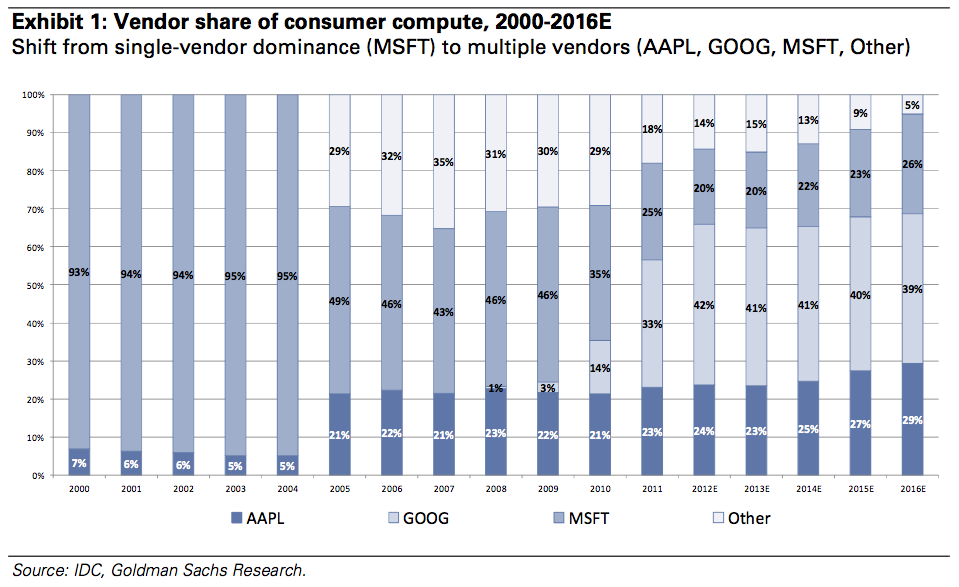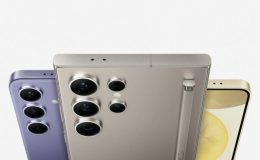
For those Linux enthusiasts still pining for the mythical “Year of the Linux Desktop,” the wait is over. In fact, it already happened. In 2012 Microsoft’s share of computing devices fell to 20% from a high of 97% as recently as 2000, as a Goldman Sachs report reveals. While Apple has taken a big chunk of Microsoft’s Windows lead, it’s actually Google that plays Robin Hood in the operating system market, now claiming 42% of all computing devices with its free “Linux desktop” OS, Android.

Yes, Android. Technically, Android isn’t a Linux desktop OS at all. It’s a smartphone OS, one that now accounts for 75% of all smartphones shipped, according to IDC.
But this niggling distinction is as pointless as it is specious. As then Sun CEO Jonathan Schwartz pointed out back in 2005, “The majority of the world will first experience the Internet through their handset.” This jibes with what I’ve been arguing for many years: the Linux desktop qua desktop is yesterday’s war, because the web and mobile have largely obviated the distinction between computing form factors. In what ways is an Android smartphone or tablet not a Linux desktop? Is it a requirement that it be of a certain size and have a physical keyboard?
Of course not. As Jim Zemlin, executive director of the Linux Foundation, mentioned to me in an email last week, “Chrome combined with Android … we had the year of the Linux desktop and nobody even knew it.”
In other words, there’s no more need for strained arguments about how the Linux desktop “arrived” because it is good enough for business productivity users, as Steven J. Vaughan-Nichols argued back in 2008, or even good enough for your grandparents, as I argued in 2010. Nor do we need to wring our hands in anguish over the in-fighting that kept us from developing a unified front against Windows and Mac OS X. And we needn’t pine for “one little thing” like an excellent gaming experience to make the Linux desktop viable.
These arguments, while credible, are excuses for losing. But the Linux desktop didn’t lose. It won.
Not only has the Linux desktop won, given Android’s dominant, and growing, market share, but it is winning in high style. Android started off as a crappy-but-free alternative to Apple’s iOS, but has recently become as good or better than iOS, largely thanks to Google’s persistence. In so doing, Android has won over the general “desktop” user by being approachable and innovative. We’ve been pining for it for years, and it already happened.
Now what are we going to talk about?
Image courtesy of Shutterstock.









